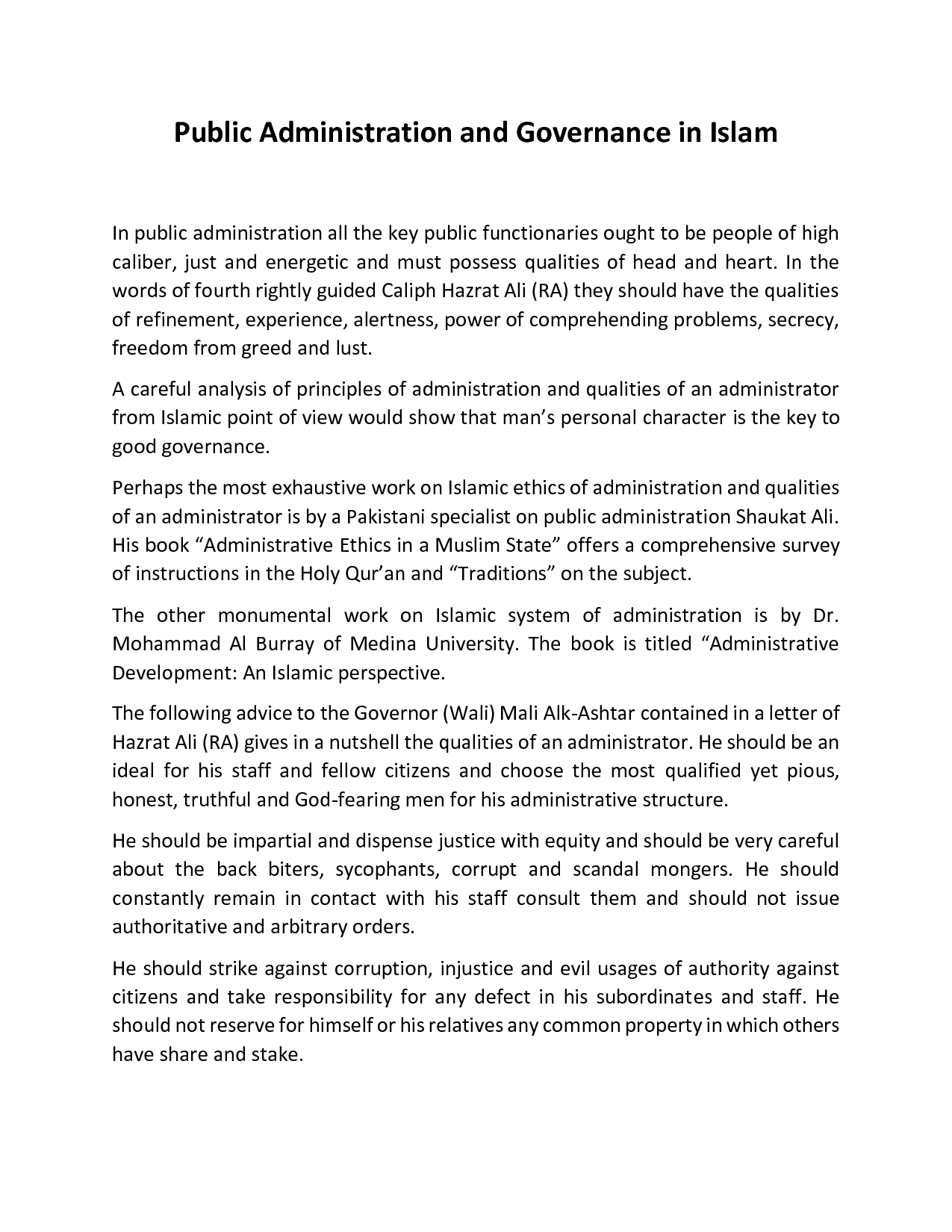VI. Policy management and Administration in Islam

Policy management and administration are significant parts of any general public, including Islamic social orders. The standards of Islam give a structure to moral and viable administration that can be applied to contemporary difficulties.
In Islam, the idea of good administration depends on the standards of equity, responsibility, straightforwardness, and discussion. The Qur’an and the Sunnah of the Prophet Muhammad (PBUH) give direction on the obligations of pioneers, including rulers and chairmen, towards their subjects.
Islamic administration accentuates the significance of conference and support of the general population in direction. This is reflected in the idea of shura (meeting), which is referenced in the Qur’an and is a vital rule of Islamic administration. Pioneers really must talk with their constituents and look for their contribution to issues that influence them.
Islamic administration additionally focuses on the significance of equity and value in the circulation of assets and the arrangement of administrations. Pioneers are supposed to act legitimately and to guarantee that assets are disseminated decently among all citizenry. This incorporates giving fundamental necessities like food, haven, and medical care, as well as guaranteeing admittance to training and work open doors.
As far as policy management, Islamic standards accentuate the significance of responsibility and straightforwardness. Pioneers are responsible to both God and individuals they serve, and they are supposed to maintain uprightness and genuineness. This incorporates guaranteeing that public assets are utilized to support individuals, and that choices are made in light of the wellbeing of the public as opposed to individual interests.
Generally, Islam gives a system to moral and powerful administration that can be applied in contemporary times. By maintaining